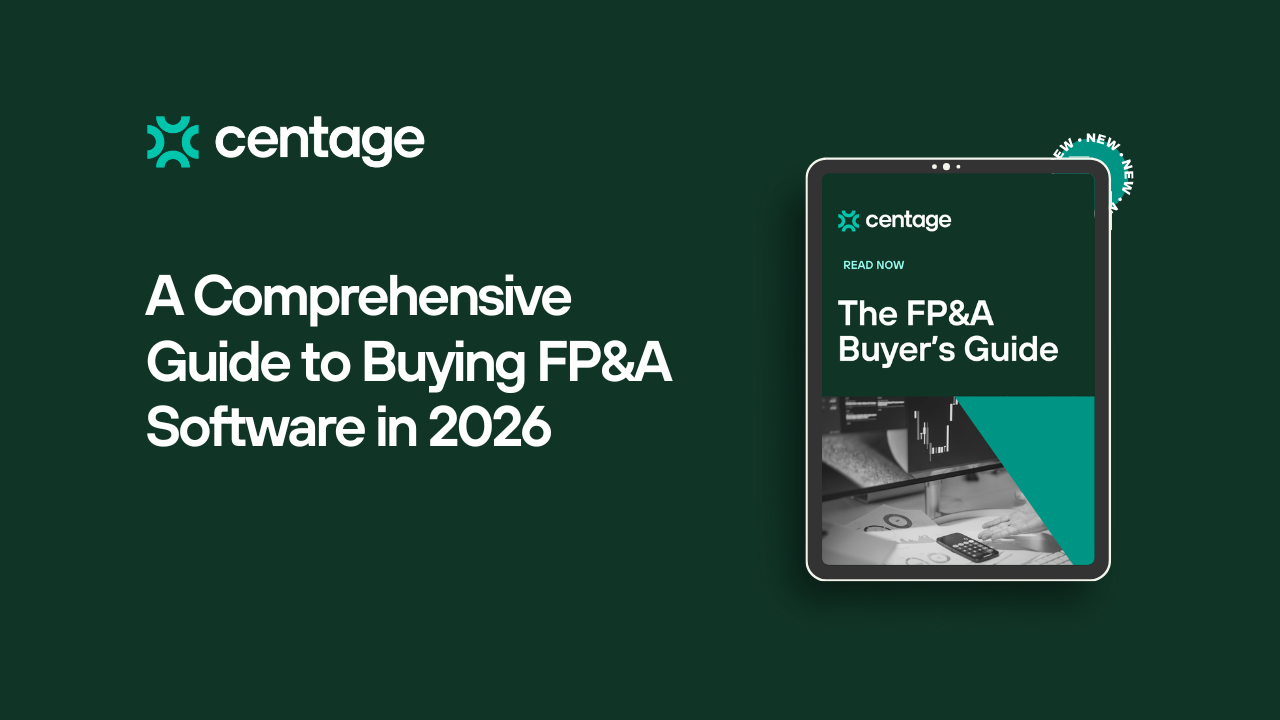Lack of Efficiency With Excel Spreadsheets
Spreadsheets are a powerful method for many businesses to store data, perform simple calculations, and help visualize essential information. As businesses continue to grow, however, spreadsheets can become complex and unwieldy for meeting a company's complete financial planning and analysis (FP&A) needs.
Why Are Spreadsheets Inefficient?
Spreadsheets present multiple challenges when used as a budgeting, planning, or forecasting tool.
1. They Create Slower Processes
Businesses relying on spreadsheets to carry out their critical financial functions often have to:
- Pull relevant data from other systems that do not integrate, such as their enterprise resource planning program (ERP).
- Enter and consolidate disparate system data by hand.
These time-consuming processes produce delays translating to:
- Less-timely reports to stakeholders.
- Missed business opportunities.
- Adverse effects on accurate forecasting.
A cloud-based FP&A platform solves these challenges with automation and integration, pulling current data from ERPs or accounting programs for faster and more precise reporting.
2. They Involve Repetitive Data Entry
Manual data input generates another challenge — repetition. The entry redundancy causes:
- Additional time delays.
- A need to carry data manually across different tabs or sheets to ensure it appears in the right places.
- More potential for human error.
FP&A software reduces this repetition and helps eliminate user mistakes.
3. Users Have to Learn Formulas
The people responsible for compiling and collating data in Excel frequently have to learn formulas to meaningfully manipulate or model the information. Doing so means:
- Users have to choose the correct formulas and the right cells to produce accurate calculations.
- Team members must master complex formulas or know the syntax for building them.
- The fewer people who can use formulas correctly, the more impact it can have on the results.
With a modern FP&A solution, accurate formulas are built right in without requiring users to manually configure or memorize them.
4. Broken Templates or Formulas Happen
Another common challenge with formulas is maintaining consistency and the ability to delete or modify them. The inherent risks include:
- Spreadsheets do not alert you to formula deletions or adjustments.
- A single unintentional keystroke can produce inaccurate results.
- One simple change can create downstream errors and paint an incorrect financial picture.
Working from a centralized platform in a modern program designed specifically for FP&A resolves these issues. Users always have the latest data to work from for better decision-making.
5. They Can Be Challenging to Troubleshoot
With manual data entry into Excel, someone must be responsible for quality-checking the information. Finding and correcting errors in a spreadsheet can be challenging because:
- Multiple users and saved revisions make it easy for someone to accidentally key data into previous versions.
- Excel does not provide a log of who accessed what and when.
With contemporary FP&A tools, you benefit from built-in role-based controls to prevent unauthorized access or data modification for more confidence in your numbers' credibility.
Drive Growth and Efficiency With Centage
Centage Corporation is a comprehensive budgeting, forecasting, and planning platform. We developed it with all the functionalities modern FP&A professionals need to become trusted business advisors.
Request a personalized quote or a free demo to see Centage in action.
Keep reading...
Interviews, tips, guides, industry best practices, and news.


